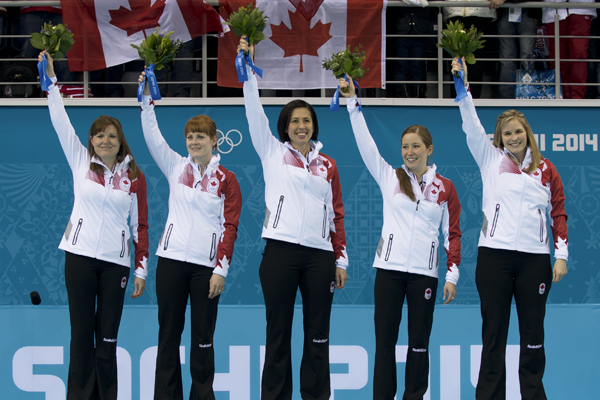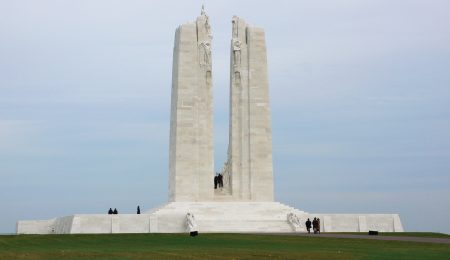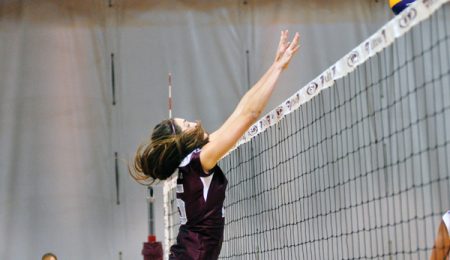Photo by Michael Burns
Three U of O alumni went to the 2014 Sochi Olympics, two contributed to gold medal
Canada ranked third for gold medals at the 2014 Sochi Olympics, and three of University of Ottawa’s alumni contributed to that effort.
Curling world champion and University of Ottawa communication alumna Dawn McEwen joined the Canadian curling team in its Olympic gold-medal victory over Sweden on Feb. 20.
McEwen, 33, grew up in Ottawa and spent much of her childhood at the RCMP Curling Club in the Rockcliffe area. She graduated with a bachelor of arts in communication from the U of O in 2004.
By 2005, she had made it all the way to the Scott Tournament of Hearts, the stepping stone to representing Canada at the women’s world curling championships, but lost in the finals to Canadian curler Jennifer Jones’ team. McEwen then went on to join Jones’ team, win the 2008 world championship, and now, alongside Jones, win gold at the Sochi 2014 Winter Olympics.
The Canadian team met the experienced Swedes with caution. Despite Canada’s 3–1 lead, Sweden managed to tie things up in the fifth end. The sixth and the seventh went scoreless, the latter intentionally in order to allow the Canadians the opportunity to maintain the final stone in the eighth and hopefully the 10th as well.
The Canadians took a 4–3 lead over the Swedes in the eighth end, but only by a hair — the stones were so close that the officials had to measure the difference. After insurmountable pressure put on by a key shot by Jones in the ninth end, the Canadians secured their 6–3 win over the Swedes.
The Canadian women’s curling team went undefeated, 11–0, in their Olympic sojourn in Sochi. Both men’s and women’s teams were backed by team leader Paul Webster, who played an essential supporting role in both teams’ gold medal victories.
Webster, 38, also spent time at the Ottawa Curling Club throughout his studies at the U of O. He graduated with a bachelor of education in 1999.
He said in an interview for U of O’s online magazine Tabaret, “Our ultimate goal is two gold medals. We have never done that before.”
James McNaughton, 26, played on the Gee-Gees men’s football team as a linebacker for five seasons before his transition to four-man bobsleigh. He graduated with a bachelor of science in health science from the U of O in 2011. He’s now on captain Justin Kripps’ four-man bobsleighing team.
Although McNaughton, with Kripps’ Canada 3 team, did not get to relish a medaling time in his first Olympic tour, he definitely gained crucial experience. His team placed sixth overall and first of the three Canadian teams in the two-man bobsleigh event on Feb. 17. What’s more is that only the three best-placed countries are allowed to bring a third team to the Olympics, despite their 30th place finish in the four-man event on Feb. 22–23, which means they are of a competitive calibre. They produced a top 10 time in their first run, but failed to follow up in the second and fell too far behind to remain competitive.
“One of James’s biggest strengths is his actual physical strength, his base power,” said Tyler Sawyer, assistant defensive coach for the Gee-Gees men’s football team. “He trained his butt off when he was playing for the Gee-Gees and obviously that put him in a good position with the Canadian Olympic team.”
The U of O also sent two of its professors to Sochi to teach at the Russian International Olympic University.
Human kinetics professors Benoit Séguin and Milena Parent joined 17 other experts in the field from around the world to deliver sports management lectures at the world’s first Olympic university dedicated to sports business.
Séguin said it was “an honour” to be asked to teach in Sochi for a two-week period, and hopes the U of O will gain new partnerships out of his and Parent’s attendance.
—With files from Sofia Hashi





